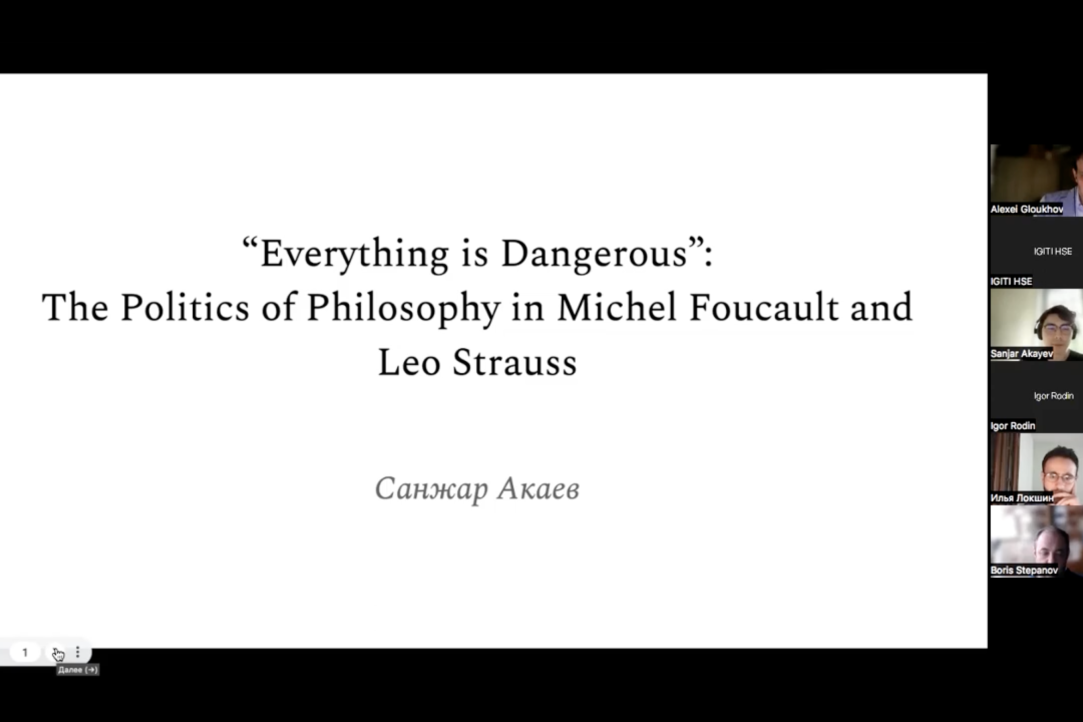Обсуждение драфта статьи Санжара Акаева на ланч-семинаре ИГИТИ
14 июня в рамках ланч-семинара ИГИТИ состоялось обсуждение драфта статьи Санжара Акаева «"Everything is Dangerous": The Politics of Philosophy in Michel Foucault and Leo Strauss».

Семинар открыл вступительный доклад Санжара Акаева, в котором описывались основные узловые моменты и аргументы рукописи. В рамках последовавшей дискуссии участники семинара высказали критические замечания о рукописи статьи, плодотворно обсудив различные проблемы, возникающие в ходе сравнения метафилософий Лео Штрауса и Мишеля Фуко.
Аннотация доклада
In this article, I attempt to show that both Strauss and Foucault envision philosophy as an activity that oscillates between action and reflection, between engagement with the politics of truth and the pursuit of truth on its own terms; however, they draw from this shared notion two rather different conclusions. They come to show that, in its relation to politics, philosophizing can be theorized in two distinct ways: philosophy as truth-seeking (Strauss) and philosophy as truth-telling (Foucault). These metaphilosophical views denote two strategies that guide the politics of philosophy—i.e., its positioning in the political order and its relation to political power. The kind of politics that, stemming from the ever-present “danger” of socio-political milieus, defines the topos of philosophy in the city as well as its potential to engage with the realm of political life (and especially with the governing subject as its centerpiece). However, in Strauss and Foucault, the politics of philosophy does not amount exclusively to the perpetual question of how philosophy and politics are interrelated: rather, it goes beyond the city, beyond the agora, striving to ascertain what philosophy itself really is—and what it should be. In this respect, the phrase “politics of philosophy” has a dual meaning: it describes both the relation of philosophy to the ones who govern, and its attempts to imagine and create its own way of (philosophical) life.
